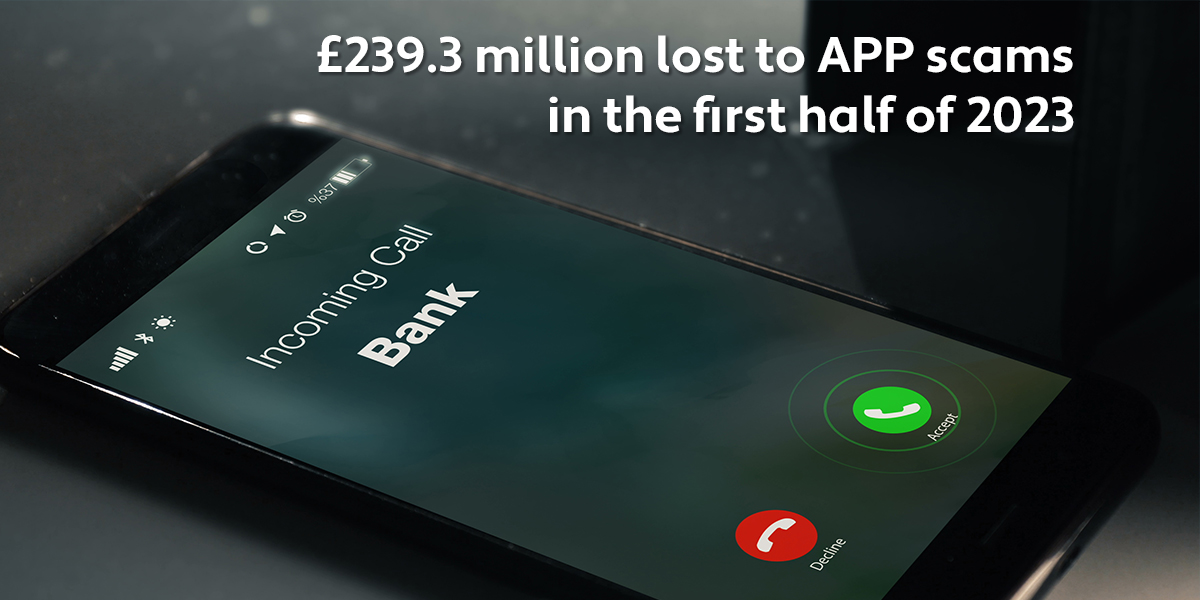Consumers unaware of the risks posed by Authorised Push Payment fraud

Authorised Push Payment (APP) fraud, a deceptive practice where individuals are tricked into sending money from their bank accounts to fraudsters, is an increasingly worrying financial crime, yet it seems to be underestimated by consumers, especially in the UK, according to new research from FICO.
The 65+ age group, notably vulnerable to such scams, exhibits the least concern about this type of financial fraud. This underestimation of risk by consumers is alarming given the rising instances of fraudsters targeting victims with elaborate APP scams designed to defraud them out of their pensions and investments, leading to significant financial losses.
Key insights from the research
Consumer Perception and Demographic Differences
- According to FICO's research, only 16.3% of consumers rank APP fraud as their top financial crime concern.
- Women are more concerned than men about APP fraud, with 19.6% of women considering it their biggest fraud threat compared to only 12.8% of men.
- Younger age groups, particularly those aged 25-34, are more likely to consider APP fraud a primary threat, with 27.9% ranking it first.
- In stark contrast, only 8.4% of those aged 65 and over see APP fraud as their biggest fraud worry, despite being highly susceptible to certain frauds like pension investment scams.
Increasing Cases of APP Fraud
- The latest figures from UK Finance, the trade association for the UK banking and financial services sector reported a 22% rise in cases of Authorised Push Payment fraud. In the first half of 2023 alone, £239.3 million was lost to APP scams.
- FICO’s research reveals that 31% of those surveyed feel the least threatened by APP fraud.
Almost 40% of respondents believed the type of fraud with the highest losses involves being tricked into sending money to a fraudster, which is essentially a description of APP fraud.
Lack of Consumer Awareness and Need for Effective Communication
- Principal fraud consultant at FICO, James Roche points out the critical need for better consumer awareness regarding the risks of APP fraud.
- Despite efforts by payment service providers to bolster their fraud prevention systems, there's a pressing need to better communicate the dangers of APP fraud to customers.
- A concerning trend is the complacency among consumers who believe APP fraud won’t happen to them, possibly influenced by regulatory measures pressuring banks to reimburse victims of such frauds.
- Roche emphasizes the necessity for payment service providers to intensify their efforts in educating consumers about the evolving nature of fraud tactics and the ongoing significance of APP fraud as a threat. Additionally, financial institutions are encouraged to enhance the use of AI and machine learning tools for preemptive fraud prevention.
Conclusion
The underestimation of Authorised Push Payment fraud by consumers, particularly among the older generations, underscores a critical gap in awareness and understanding of this financial threat. Despite increased cases and the potential for significant losses, there remains a disconnect between the perceived and actual risks of APP fraud. This calls for a concerted effort from financial institutions and regulatory bodies to strengthen consumer education and deploy advanced technological measures to combat this evolving form of fraud. Addressing this challenge is crucial, not only to protect consumers from financial losses but also to maintain the integrity and trustworthiness of payment systems in our digital economies.
JT's Mobile Intelligence division is leading the fight against APP fraud with their innovative Scam Signal product that is helping banks and financial services to better understand and stop Authorised Push Payment fraud.
Stay up to date on how to combat financial fraudJT's Mobile Intelligence division works with banks and financial services across the world to increase the awareness of how fraud is perpetrated and to deploy innovative fraud prevention solutions to combat todays most pervasive types of frauds. For more information on JT’s Mobile Intelligence solutions contact our team of experts today. |
Categories



